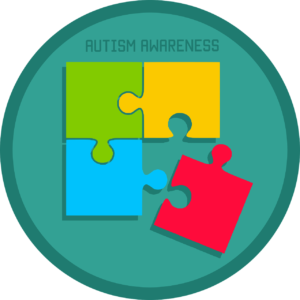What Is Autism Spectrum Disorder?
Diagnosis of Autism Spectrum Disorders
Autism spectrum disorder (ASD) is a developmental condition commonly associated with communication difficulties, confined interests and repetitive behaviour. Even though ASD is considered a lifelong disorder, the severity of behavioural traits varies between individuals.
Early signs of autism can be detected by parents or specialists before a child reaches their first birthday. Symptoms of children with ASD generally become more apparent by the time the child is 2-3 years old. However, impairments related to autism may only be apparent once the child attends school.
Communication impairments in individuals with ASD may include:
- Difficulty sharing with others;
- Not understanding other peoples’ emotions;
- No eye contact while talking;
- Limited vocabulary;
- Difficulty making new friends;
Repetitive traits and limited interests may include:
- Same activities/routine on a daily basis;
- Cannot cope with change in routine or environment;
- Extremely sensitive to loud noises;
- Overly focused on specific activities;
- Arranges clothes or toys in a very specific manner;
Concerns raised over a child’s behaviour by their caregiver or teacher should be forwarded to a specialist for further evaluation. These evaluations involve performing an interview with a child’s parents and observing the child’s behaviour when in a structured environment. An early diagnosis of autism can greatly assist parents in finding early intervention and ongoing support for their child.
The first step in obtaining a diagnosis for your child is seeking an evaluation from a specialist. It is common for parents to ask their pediatrician who can observe the child’s development. However, for children under the age of 3, it is possible to seek an evaluation from your nearest early intervention service. For children over 3, it is possible to contact your nearest school and request an evaluation, even if your child does not attend the school.
Risk Factors for Autism
It is suggested that genetic factors may increase the chance of being diagnosed with autism. Genetic conditions such as the Fragile X Syndrome or Tuberous Sclerosis have been identified to increase autism rates. Moreover, medications taken during pregnancy, such as thalidomide and valproic acid, can also elevate the risk of autism. Similarly, having autism in the family also increases the chance of a child being diagnosed with it. To the contrary, vaccines are not shown to increase the risk of autism, nor are socioeconomic factors, race or ethnicity considered risks. Male children are generally more likely to be diagnosed with autism, though this is changing.
While no cures or treatments exist for autism, there are certain intervention techniques that can lessen the impacts of autism.
- Applied behavioural analysis: This involves studying the child’s daily activities and challenges. Using this information, a behavioural plan is drafted which aims to alleviate any challenges the child may face.
- Social skills training: This is done in individual or group settings and assists children on the spectrum to better deal with social environments.
- Speech and Language Therapy: This can improve a child’s speech and understanding of languages.
- Occupational therapy: This helps a child address deficits in daily life, including coordination issues (handwriting)
- Parent management training: This will assist parents in learning how to effectively respond to behavioural issues and mitigating these in their child. Parent support groups are also available to help parents cope the stress that caring for an autistic child may bring.
- Tailored education services: This will enable a child with autism to achieve their full potential academically. Individual education plans will be provided by the school to address the difficulties that a child with autism may have. These plans can include special classes during the day for young children to learn social, verbal and life skills.
- Addressing re-occurring conditions: Children with autism commonly experience anxiety and depression more commonly than their peers who do not have autism. Similarly, they are more prone to ADHD. Children with autism may have intellectual problems, and thus additional support is required. The impact of all aforementioned conditions can be alleviated through appropriate support , including through medication and psychotherapy.
- Medication: Medication can be helpful in alleviating depression, anxiety and impulsivity. As an example, irritability in autistic children can be lessened through aripiprazole and risperidone when prescribed by a specialist in consultation with the child’s parents.
Over the years, many alternative intervention approaches have been considered, including putting the child on a special diet and giving the child supplements in an effort to reduce autistic traits. However, definite evidence has not been found to date that supports these approaches. Nevertheless, it is recommended that parents consult with their specialist on any alternative approaches.
Several complementary and alternative interventions involving special diets and supplements have been tried over the years by parents/caregivers seeking ways to help their child with autism function better. To date compelling evidence has not been found to clearly recommend any such specific interventions. Research into these types of interventions continues, and parents/caregivers interested in them should discuss them with their child’s treating clinician.
Additional tips and tricks for parents:
- Try to inform yourself about ASD
- Ensure a consistent and structured environment
- Ask other parents of children with autism
- Seek specialist help when trouble arises
- Make sure to take some time off!
Having an autistic child in your family will affect everyone. Make sure to pay attention to the physical and mental well-being of your family. There are organisations that can help assist parents and caregivers of autistic children. More details can be found at the resources section.



